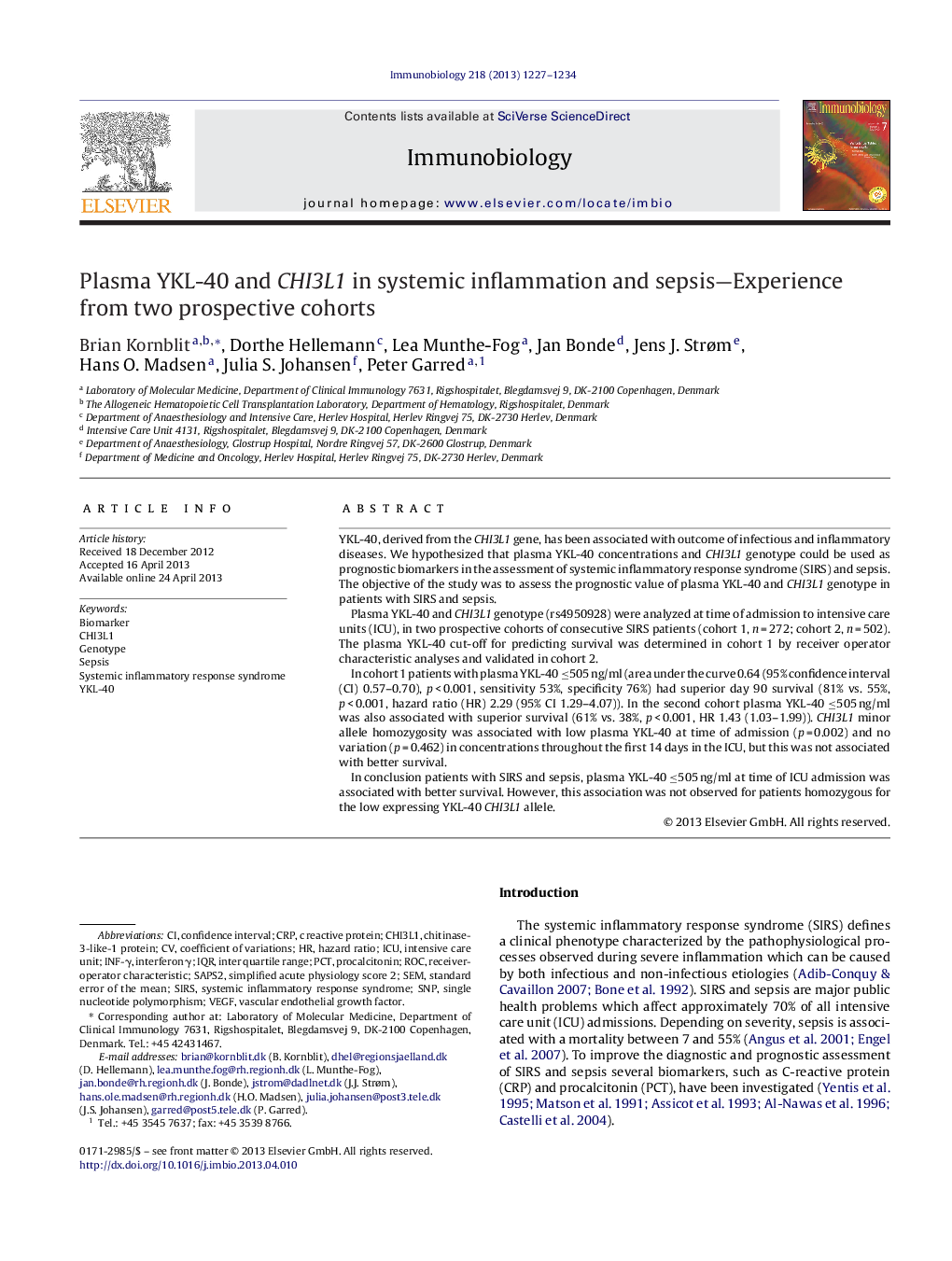| Article ID | Journal | Published Year | Pages | File Type |
|---|---|---|---|---|
| 2182924 | Immunobiology | 2013 | 8 Pages |
YKL-40, derived from the CHI3L1 gene, has been associated with outcome of infectious and inflammatory diseases. We hypothesized that plasma YKL-40 concentrations and CHI3L1 genotype could be used as prognostic biomarkers in the assessment of systemic inflammatory response syndrome (SIRS) and sepsis. The objective of the study was to assess the prognostic value of plasma YKL-40 and CHI3L1 genotype in patients with SIRS and sepsis.Plasma YKL-40 and CHI3L1 genotype (rs4950928) were analyzed at time of admission to intensive care units (ICU), in two prospective cohorts of consecutive SIRS patients (cohort 1, n = 272; cohort 2, n = 502). The plasma YKL-40 cut-off for predicting survival was determined in cohort 1 by receiver operator characteristic analyses and validated in cohort 2.In cohort 1 patients with plasma YKL-40 ≤505 ng/ml (area under the curve 0.64 (95% confidence interval (CI) 0.57–0.70), p < 0.001, sensitivity 53%, specificity 76%) had superior day 90 survival (81% vs. 55%, p < 0.001, hazard ratio (HR) 2.29 (95% CI 1.29–4.07)). In the second cohort plasma YKL-40 ≤505 ng/ml was also associated with superior survival (61% vs. 38%, p < 0.001, HR 1.43 (1.03–1.99)). CHI3L1 minor allele homozygosity was associated with low plasma YKL-40 at time of admission (p = 0.002) and no variation (p = 0.462) in concentrations throughout the first 14 days in the ICU, but this was not associated with better survival.In conclusion patients with SIRS and sepsis, plasma YKL-40 ≤505 ng/ml at time of ICU admission was associated with better survival. However, this association was not observed for patients homozygous for the low expressing YKL-40 CHI3L1 allele.
